 By John Foldberg –
By John Foldberg –
This past week, at the invitation of Curtis Solomon, a good friend and Director of the Biblical Counseling Coalition and also a member of the Mighty Oaks Advisory Committee, I had to privilege to speak at the Reformed Theological Seminary in Charlotte, NC. It was a great honor and pleasure to tell the seminary students who are pursuing an advanced degree in Biblical Counseling about the ministry of Mighty Oaks. I was asked to share specifically how I do “crisis counseling” as a mentor and biblical counselor through my role as Aftercare Manager with Mighty Oaks.
My perspective on counseling is that it is—at its core—coming alongside another to help him find hope in Christ. So the primary goal in counseling is that people find hope and help from God that is available through a relationship with Jesus Christ. When I get a call from a veteran who is struggling and has lost hope—perhaps even to the point of considering taking his life—that is the prayer I praying even as I’m listening to him: pointing him to hope in Christ.
This goal in counseling—hoping in a relationship with God through Christ—is for anyone that is struggling with issues in life. Those issues may be from consequences of their own sin, or because of others’ sin affecting them, or from living in a fallen world cursed by sin. So no matter whether I’m talking with a veteran during a Men’s Legacy class, or on the phone with a distraught wife whose husband struggles with PTS, or in an ongoing weekly counseling relationship with someone, I want to point them always to Christ. I agree with biblical counselor Winston T. Smith: “I try to keep two objectives in mind – to help people see Christ, and to help them deal with things that keep them from seeing Christ.”
To that end, here is a common course of counsel I follow when responding to a person who is struggling:
We Open the Manual: My start point is Scripture. Since I am going to use to Bible as my source of counsel, it’s important for them to understand why I use the Bible. The first place we go is to 2 Timothy 3:16-17:
“All Scripture is breathed out by God and profitable for teaching, for reproof, for correction, and for training in righteousness, that the man of God may be complete, equipped for every good work.” (ESV)
Ministering to mostly veterans, this is not a difficult thing for them to embrace. Military members understand the need for training manuals, and directives that tell them how to do their jobs. So when I point out that the Bible is what the Creator of the universe has revealed to us on how we are to worship Him, and how to live with each other, they understand that the Bible is our “training manual.”
We Get In Step: Because a significant contributor to the struggles and difficulty of post-traumatic stress is the sense of isolation the person feels, my next step is to show them that they are not alone, that the things they are facing have been experienced by others. We get in step—coming alongside one another—both personally and biblically. Personally because the leadership at Mighty Oaks is comprised of combat veterans who have struggled with PTS, myself included, and biblically as we open the Bible and see others who have experienced some of the same problems. I start with the warrior-king David’s expressions of despair and hopelessness in Psalm 6. We read verses 2-7 and I ask if that describes them and where they are right now:
Be gracious to me, O Lord, for I am languishing;
heal me, O Lord, for my bones are troubled.
3 My soul also is greatly troubled.
But you, O Lord—how long?
4 Turn, O Lord, deliver my life;
save me for the sake of your steadfast love.
5 For in death there is no remembrance of you;
in Sheol who will give you praise?
6 I am weary with my moaning;
every night I flood my bed with tears;
I drench my couch with my weeping.
7 My eye wastes away because of grief;
it grows weak because of all my foes.
They are often encouraged to learn that, not only are they not alone as they connect with David’s confusion and pain, but that the Bible truly does speak to problems we face today.
We Identify the Exit Strategy—Now on the path together, I will then turn to 1 Cor. 10:13 and show them a hope-packed promise in the training manual. One that helps them even more clearly they are not alone, and that God promises to provide them with a way off of the current course they are on: 1 Corinthians 10:13 (ESV)
13 No temptation has overtaken you that is not common to man. God is faithful, and he will not let you be tempted beyond your ability, but with the temptation he will also provide the way of escape, that you may be able to endure it.
This verse tells us that what we are experiencing others before us have also experienced. The promise associated with this is that when we are tempted to respond to the trauma we have experienced with despair, anger, substance abuse, anxiety, lust, bitterness, lack of forgiveness, fear, etc.), God will always provide an exit. I also tell them that this “way of escape” may not be an easy route. In fact, it will probably be very difficult. But just like David, God promises to walk with us. At this point we go back to Psalm 6 and see that, although we left David on his bed in tears and anguish, David has renewed hope:
for the Lord has heard the sound of my weeping.
9 The Lord has heard my plea;
the Lord accepts my prayer.
David, in the midst of his pain turned to God and sought Him and trusted in Him for his help.
We Trust the Point Man. This is a critical aspect of the counseling: encouraging him to turn to God, to trust in Him. If he is an unbeliever, this provides the opportunity to present the gospel. To show him how God has cleared the path back to Himself through the death and resurrection of His Son, and to encourage him to seek God in repentance and faith. If he is a believer, it’s to remind them of God’s promises in Christ: He will never leave us and that His love for us endures forever. As we fix our eyes on the One who has gone before us, we read Romans 8:37-39:
No, in all these things we are more than conquerors through him who loved us. 38 For I am sure that neither death nor life, nor angels nor rulers, nor things present nor things to come, nor powers, 39 nor height nor depth, nor anything else in all creation, will be able to separate us from the love of God in Christ Jesus our Lord.
Our Savior has led the way, and we are following Him. We are conquerors through Him, and it is His everlasting love and loyalty to us that will not only strengthen us, but it will be His love that sustains us for all eternity.
We Commit to Training. It’s critical that they understand this love and hope will help them today, not just in eternity. God promises to change us as we read and follow His training manual. He promises that as we commit to knowing and following Christ, we will become like Him. We see that in Galatians 5:22-23 we can have:
22 But the fruit of the Spirit is love, joy, peace, patience, kindness, goodness, faithfulness, 23 gentleness, self-control;
As we close our conversation, I assure them that our circumstances may not change but even in the midst of painful circumstances we can bear this fruit.
We Set Up Communication. We pray together. I ask them to think about what we’ve talked about, to consider the hope offered in a relationship with Christ, and contrast that with where they currently are in their life. I then commit to follow up with them after giving them time to think and pray about what we’ve discussed.
The “crisis counseling” conversation I’ve outlined above is not a formula, and each conversation is as different as each individual who is reaching out for help. I don’t necessarily go through each step if I sense that I’m overwhelming or losing them. That goes back to what I mentioned at the beginning: praying throughout the conversation.
It’s not a formula, because I’m not a scientist, but a farmer. I’m sowing the seed of the gospel to regeneration and fruit-bearing, the same way it was sown in me. With each conversation, I’m planting a seed, and I’m praying that seed I’m planting falls on fertile soil and God will cause that seed to bear fruit for Him. That many more will be called mighty “oaks of righteousness, a planting of the Lord for the display of His splendor.” (Isaiah 61:3)






